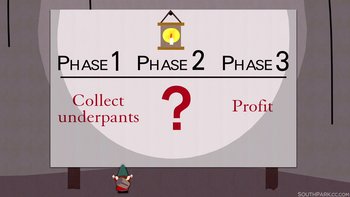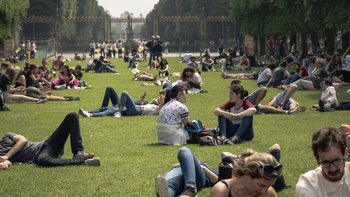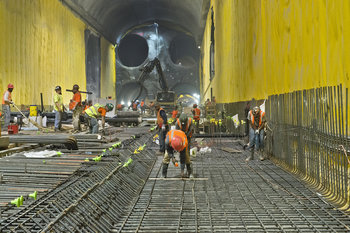
Public Land
The use of public land. For example, a mining or logging company that is granted a right to mine in a national park. In some cases, this results in degradation of public lands.Public Buildings
Granting the right to operate buildings that the public owns. For example, a concession to run a sports arena that was constructed by a city.Public Services
A public service is a service that is critical to quality of life such that it is provided by a government. In some cases, these are run as concessions creating the potential for the profit motive to take precedence over the public good. For example, a concession to run the water services for a city or region.Public Infrastructure
A contract to run public infrastructure for profit. For example, a toll road constructed by a government that is run by a company for profit.Street Vendors
In many cases, concessions can add to the liveliness of an area whereby small businesses are allowed to operate on public streets in a regulated environment. For example, a city that licenses thousands of street vendors that can loose their license for bad behavior such as littering the street.Arts & Culture
Supporting arts and culture by granting valuable licenses to artists and musicians to use public land. For example, a city that holds auditions, judged by community members, to grant licenses to perform in subway stations to talented musicians.Concession Stands
The term concession is also used in the private sector to denote contracts to operate a store-within-a-store and similar arrangements. For example, a hotel that grants a concession to a small business or chain to run a convenience store in its lobby.Local Monopolies
In many cases, concessions resemble small monopolies. For example, an airport authority that grants the rights to operate all restaurants in an airport to a single firm. This would tend to be bad for consumers as it may lead to high prices and little variety due to a lack of competition.Notes
The argument for concessions is that the public sector is more efficient at offering certain types of services than the government. For example, nobody wants to eat at a restaurant run by the government.As a principle, concessions must be offered in an open competitive bidding process that is transparent. Where possible, concessions should create competition not prevent it. For example, offering 50 concessions to different restaurant companies at an airport as oppose to a single concession for the entire airport. Concessions require oversight with the government retaining power to end the concession for mismanagement or anti-competitive practices.Concessions have a fixed term that is not too long to ensure that a government can replace a firm that is underperforming.Concessions can create lively small businesses that improve a city. For example, a park with a few cafes can be more lively than a park devoid of services.Concessions are a common way to fund government works such as airports.| Overview: Concession | ||
Type | ||
Definition | A contract that allows a private company to use public property for a profit. | |
Related Concepts | ||































